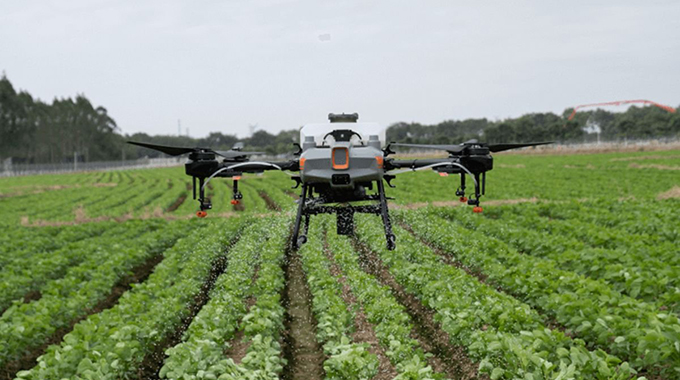Digitalisation of agriculture sector critical for sustainable production

Elton Manguwo
THE Ministry of Lands, Agriculture, Fisheries, Water and Rural Development has established a platform for sustainable agriculture production through the adoption of smart technologies, as the country moves to expand its digital footprint to agriculture.
In a speech delivered by a senior government official, Hilary Mugiyo on his behalf during the Vital Concepts Agro-Summit 2022 in Harare on Wednesday, Agricultural and Rural Development Advisory Services (ARDAS) chief director Professor Obert Jiri said emerging agriculture trends marked a shift towards smart farming and efficient utilisation of time and resources while reducing crop losses.
The adoption and use of the latest technology in the agriculture sector in Zimbabwe ensures agriculturists can connect with the global network of farmers, agronomists, business and other service providers to stay up to date on the latest industrial practices.
“In Zimbabwe, few farmers now use automated harvesters, drones, automated tractors for seeding and weeding to transform the way they cultivate crops. This technology takes care of menial and recurring tasks, allowing farmers to focus on more critical tasks,” said Professor Jiri.
As the Government pushes for the successful attainment of Vision 2030, the agricultural industry is making great strides and efforts towards making the vision a reality through various technological, research and developmental programmes.
In addition, the just launched AIMS project is part of the Ministry’s investment in the digitalisation of agriculture leading to automated decision-making processes to improve efficiency and reduce costs while increasing production and productivity.
“Technological advancements in agriculture meet the growing demand for farm automation, digitalisation and sustainability,” said Professor Jiri.
The advent of climate change has resulted in the roping in of agricultural methods that influence precision production, that is, the concept of using less to produce more. Therefore, the roping in of unmanned aerial vehicles gives the country an advantage in climatic conditions developments.
Professor Jiri revealed that his Ministry was working with various stakeholders such as ZINGSA and Food Agriculture (FAO) to embrace earth observation information which is widely used for expansion of precision farming.
Furthermore, precision farming technologies often use global navigation satellite systems to improve efficiency with products and techniques that can cut unnecessary expenses on seed, fuel, agrochemicals and time.
“The use of modern technology in agriculture provides farmers with real-time insights into their field conditions allowing them to be pro-active through forecasting crop yield and prices thereby aiding farmers to make informed decisions”, said Professor Jiri.
Continuous improvement of the agriculture industry is important as the country journeys towards the attainment of Vision 2030.










Comments